Master E-Fleet Operations: Your free 5-day crash course to cut charging costs by 30% while scaling from <5 to 500+ heavy vehicles. ☛ Get Lesson 1.
A case study
Being part of NorgesGruppen, ASKO is the leading Norwegian grocery wholesaler that runs 13 distribution centers and more than 700 trucks across the country. Those trucks deliver grocery to more than 1,400 supermarket outlets and an even larger number of restaurants, hotels, cantinas or similar smaller customers. About half that fleet is run by strategic subcontractors.
Since 2020, ASKO have grown their battery-electric truck fleet from 10 to more than 120 vehicles. Another 100 electric trucks are planned to be added to the fleet in 2024 alone thereby continuing the journey to a fully, fossil-free transportation by 2026.
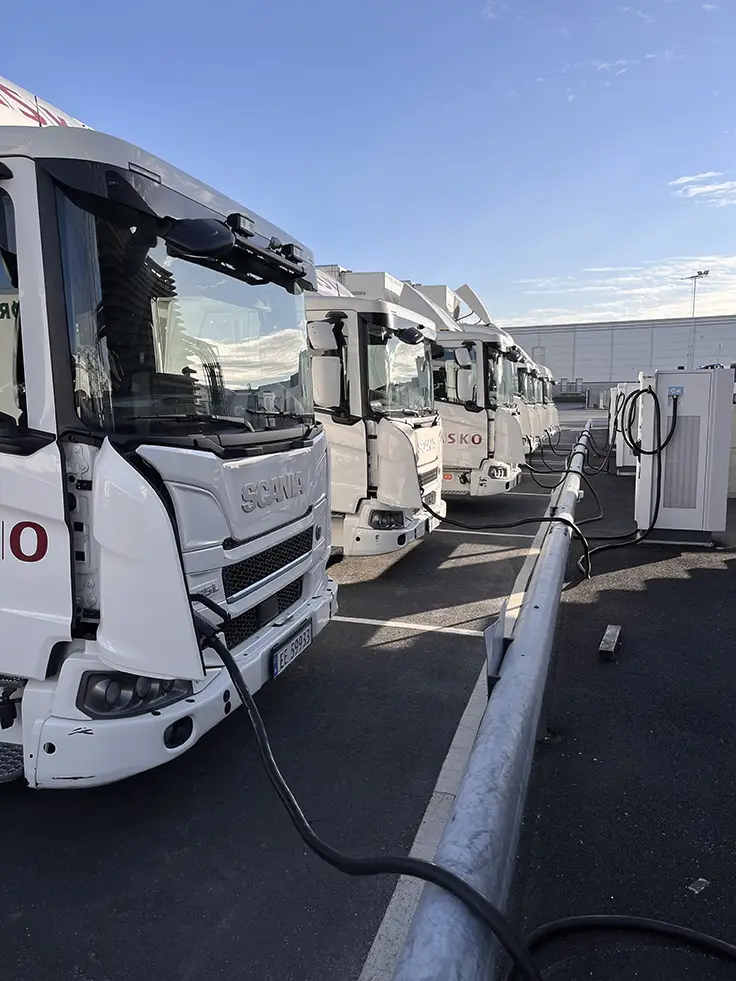
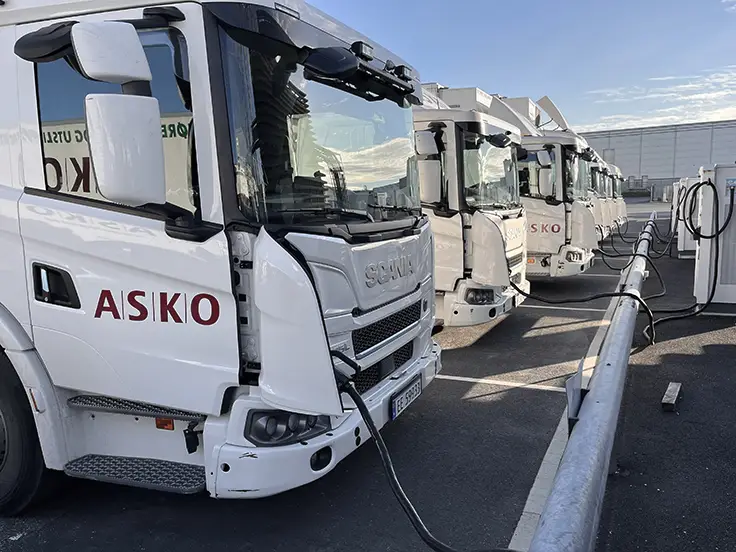
ASKO Norway’s largest grocery distributor – 700 trucks, 18 depots
4 distribution centers with 2-shift, multi-tour grocery deliveries own, sub-contracted, 3rd party fleet
70+ e-trucks (swap bodies, semi-trailers, gate loading), multiple OEMs, native telemetry, 3rd party TMS
~40 chargers with 80+ outlets 5 models from 2 OEMs
The electrification of a fleet of that magnitude requires diligent planning, tight supervision, and swift recalibration. In such an environment, everything is constantly up for change: accommodating the transportation schedule for new or changed customer orders, absorbing the deviations between the plan and the realities of road traffic, responding to fluctuations in driver availability, or reconciling the fleet following operational problems with trucks are just some of the challenges the fleet is wrestling with day-in day-out. Much like other commercial fleets ASKO has optimized its daily operations for superior customer service, operational excellence as well as total cost of ownership throughout decades of experience with Diesel trucks.
While transition to a net-zero transportation was a strategic mandate, adding further processes and time-consuming activities like battery charging, energy planning, infrastructure reservations and coordination of drivers, trucks, and charging outlets was considered a threat to that optimized system.
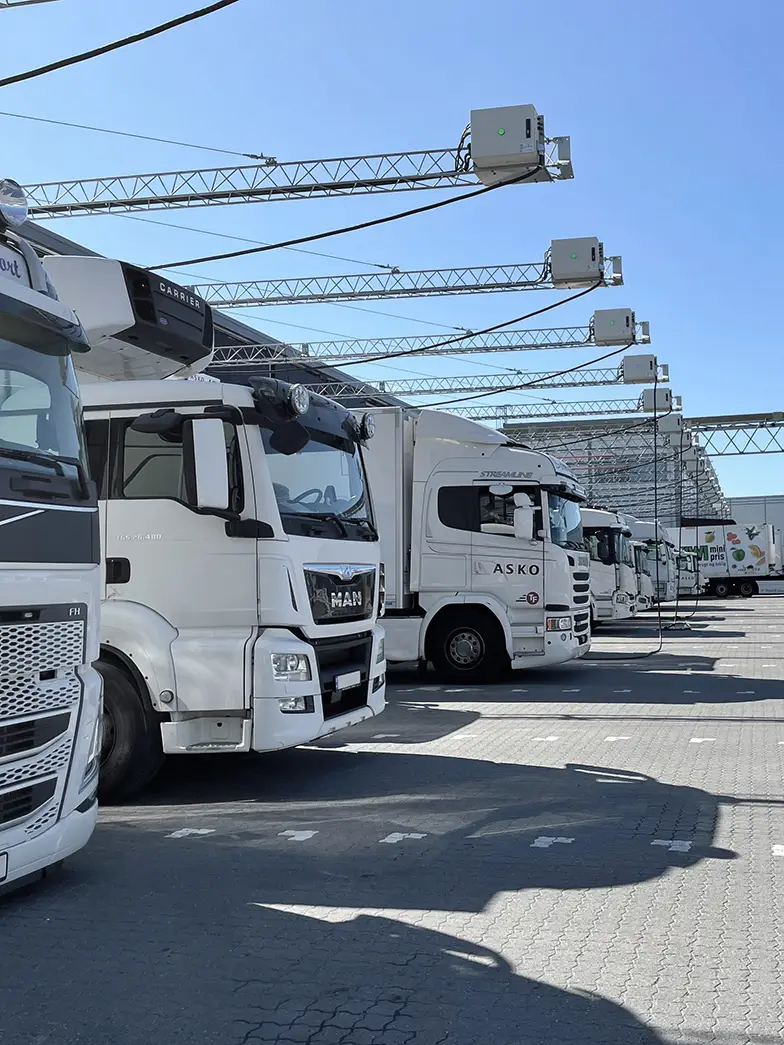
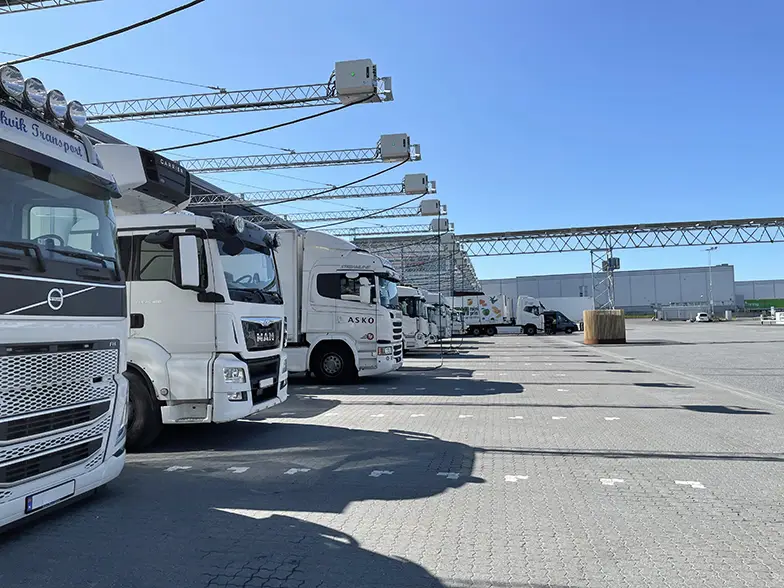
We now feel comfortable to further continue the ramp up of our fleet of electric trucks leading to a fossil free transportation by 2026.
— Svein Sollie, ASKO’s Director of Transportation

Managing Director
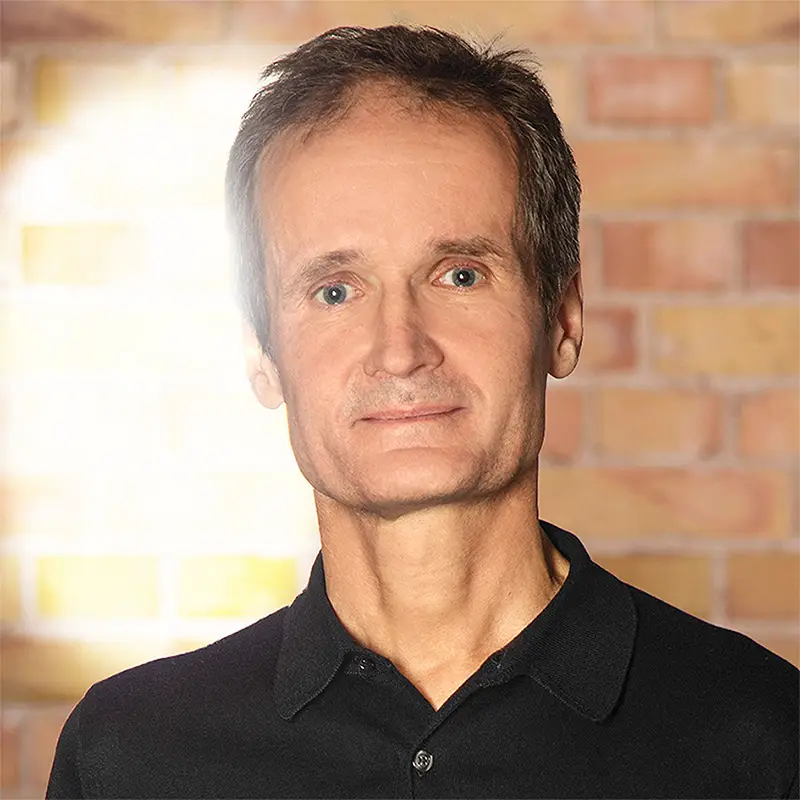
Managing Director